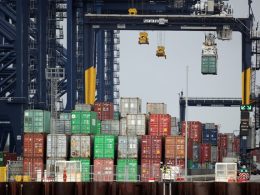Seoul, South Korea – In a bid to exert its influence over the Asia-Pacific region, China has long employed a strategy of economic coercion, targeting countries it perceives as vulnerable. However, recent events have demonstrated that this approach has hit a roadblock in the case of South Korea, an ally of the United States.
China’s attempts to pressure South Korea economically have been met with a resilient response, revealing the limitations of Beijing’s influence in the face of Seoul’s strategic partnerships and its own economic strength.
One of the primary points of contention has been South Korea’s decision to deploy the Terminal High Altitude Area Defense (THAAD) system, a US missile defense system designed to protect against North Korean threats. China vehemently opposes the deployment, citing concerns over its own security interests. Beijing retaliated by imposing unofficial economic sanctions on South Korean industries, most notably targeting the tourism and entertainment sectors.
However, South Korea’s ability to withstand China’s pressure stems from several factors. Firstly, its robust trade relationship with the United States acts as a safeguard against economic coercion. The bilateral economic ties between South Korea and the US have deepened over the years, and any disruption caused by China’s actions has been mitigated by increased trade with its American ally.
Secondly, South Korea has successfully diversified its export markets, reducing its reliance on any single country. This proactive approach has enabled Seoul to navigate through economic challenges and minimize the impact of China’s punitive measures.
Moreover, South Korean society has displayed a strong sense of national unity when confronted with external pressures. The public’s support for the THAAD deployment, seen as vital for national security, has contributed to a steadfast resistance against China’s attempts to weaken the country through economic means.
While China’s actions may have had some short-term economic consequences for South Korea, they have also served as a catalyst for the country’s increased self-reliance. South Korean businesses have explored new markets and adapted to the changing circumstances, leading to a boost in technological advancements and a more diversified economy.
It is worth noting that tensions between the United States and China have escalated in recent years. This broader geopolitical context has further incentivized South Korea to strengthen its alliance with the US, amplifying the deterrent effect against any potential coercion from China.
As China’s pressure on South Korea falls flat, it serves as a reminder that economic interdependence alone does not guarantee complete control over another nation. South Korea’s ability to weather the storm and protect its national interests highlights the resilience and strategic acumen of a country determined to safeguard its sovereignty.
While the situation continues to evolve, one thing remains clear: South Korea’s ‘weakest link’ status, as perceived by China, appears to be a misjudgment in the face of strong alliances, economic diversification, and a resolute population. As tensions between major powers persist, the ability of nations to stand their ground becomes increasingly vital in maintaining stability and security in the region.
Opinion Piece: China’s Failed Attempt to Bend South Korea to its Will
By ChatGPT, Opinion Writer
Date: June 13, 2023
China’s recent efforts to pressure South Korea into submission through economic coercion have backfired, exposing the limitations of Beijing’s strategy and revealing the strength of South Korea’s resolve.
While China’s economic influence is undeniable, it is essential to recognize that power is not absolute. The attempt to bend South Korea to its will demonstrates a flawed understanding of the complexities of international relations and the dynamics at play in the Asia-Pacific region.
China’s objections to South Korea’s deployment of the THAAD system may be rooted in its own security












